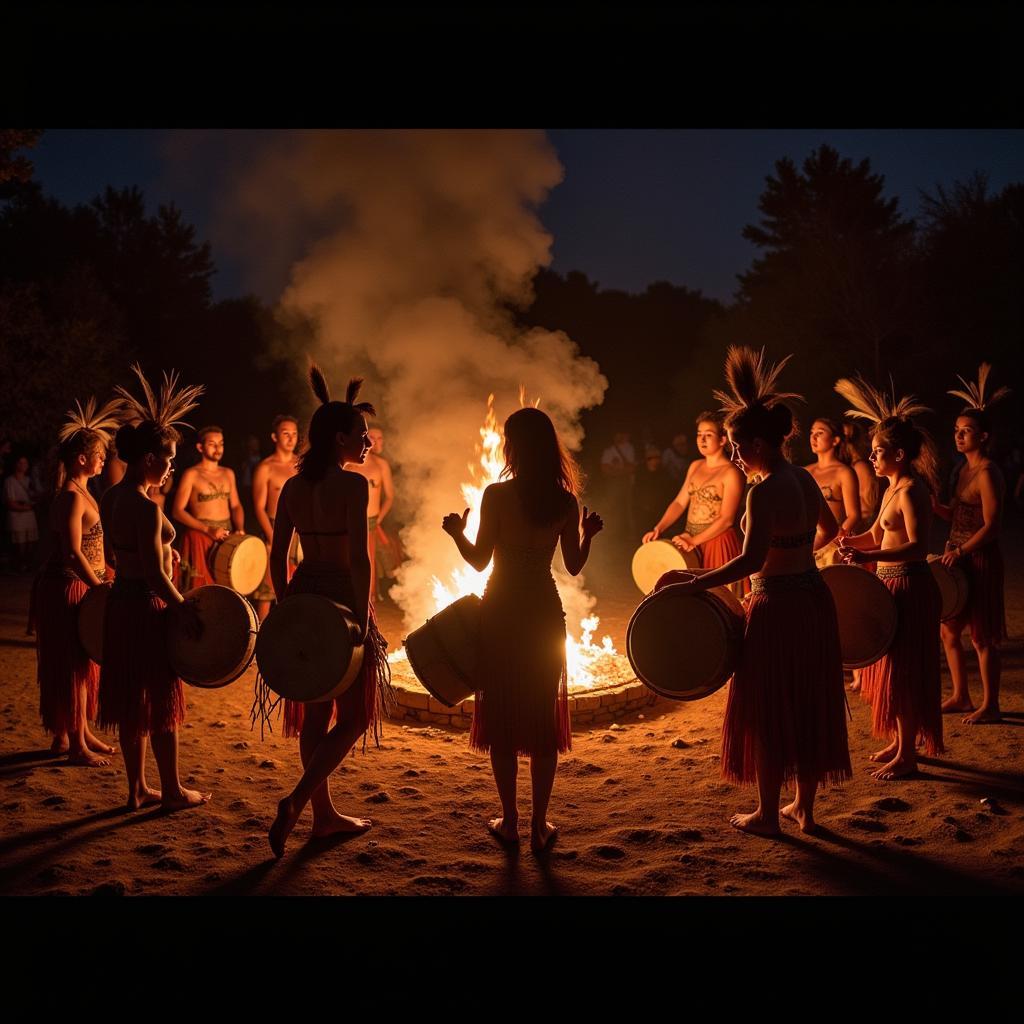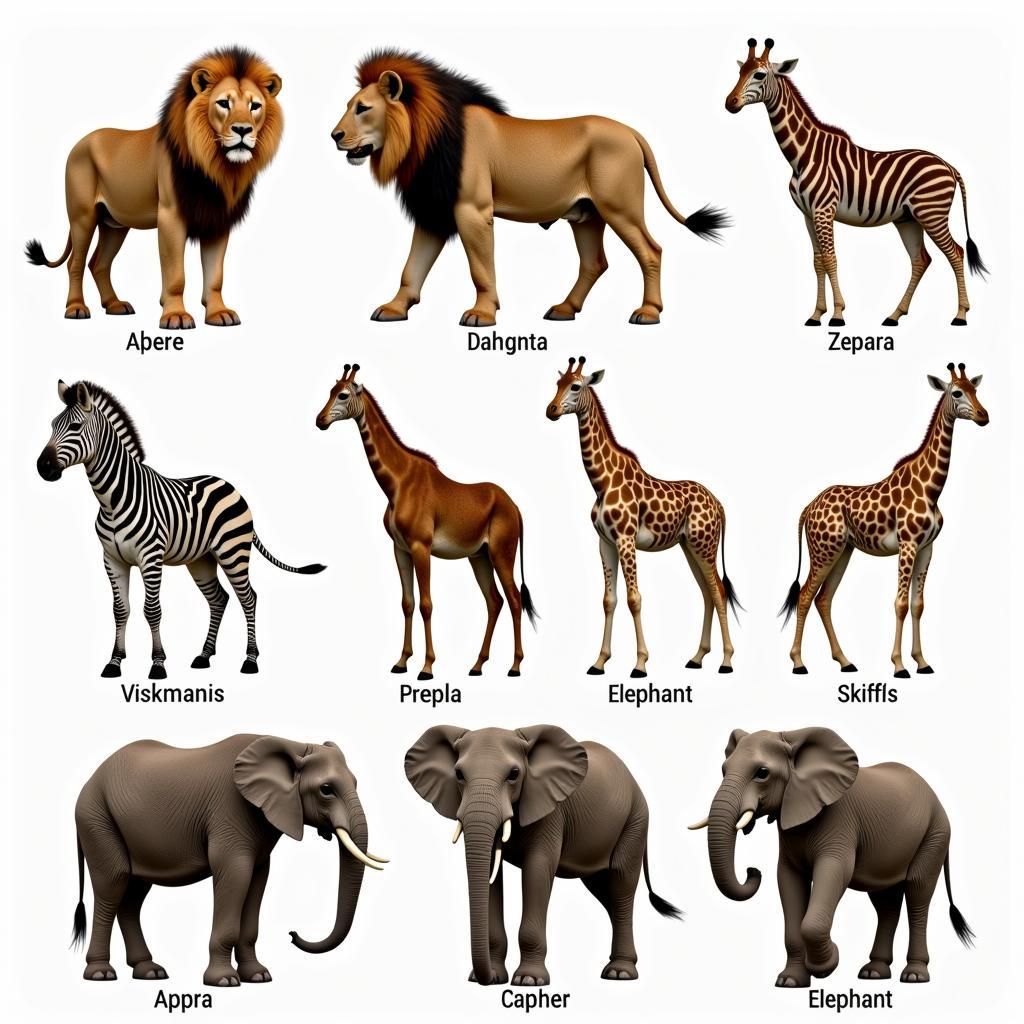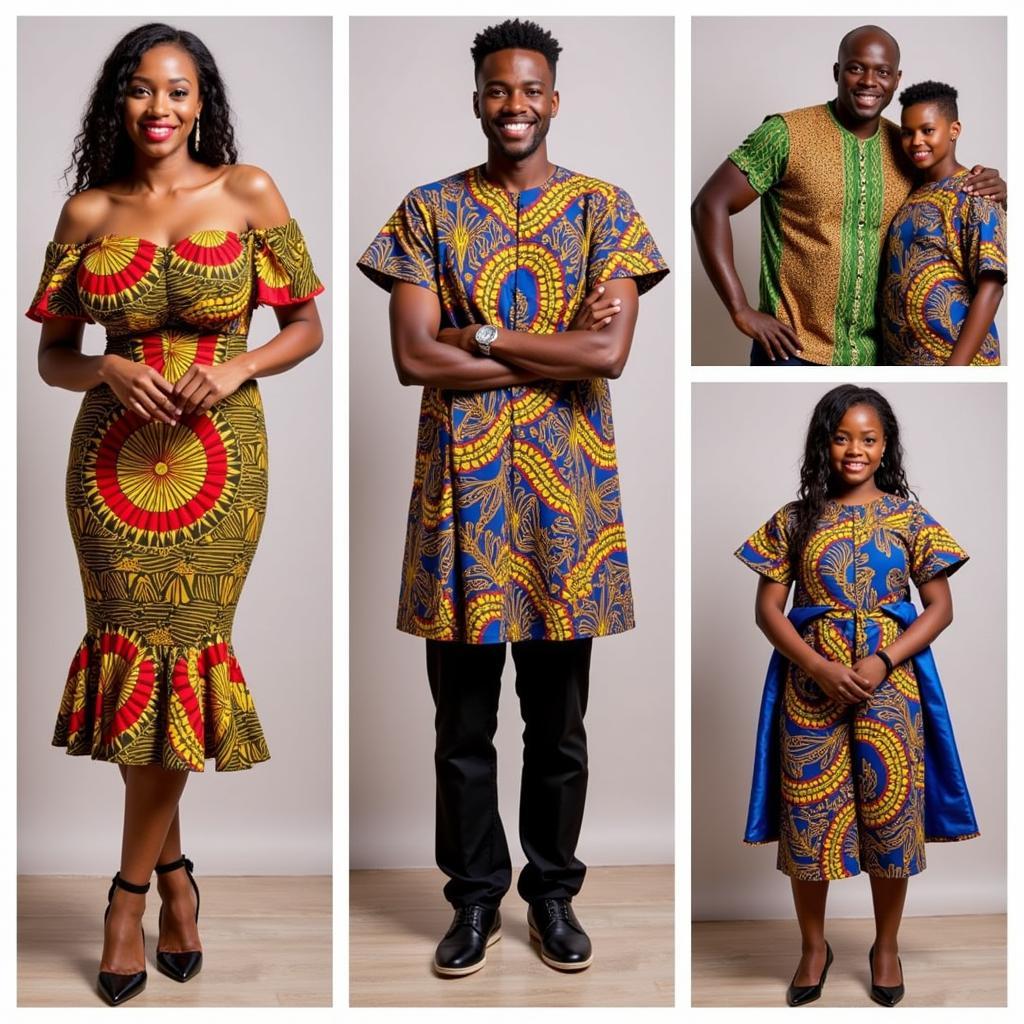Understanding the African Female Circumcision Ceremony
Female circumcision, also known as female genital mutilation (FGM), is a deeply rooted practice in some African communities. This article explores the complex cultural context surrounding the African Female Circumcision Ceremony, examining its history, varied practices, and the ongoing efforts to eradicate it. We’ll delve into the reasons behind its continuation and the significant health and social consequences it carries. We’ll also address the misconceptions surrounding the practice.
The tradition of African female circumcision is often linked to cultural beliefs about femininity, purity, and marriageability. While viewed by some as a rite of passage into womanhood, it’s crucial to acknowledge the severe health risks and human rights violations associated with FGM. It’s a complex issue with deep historical and social roots. Understanding these complexities is the first step towards creating meaningful change.
The Cultural Significance of African Female Circumcision
In certain African cultures, female circumcision is seen as a necessary step to prepare girls for adulthood and marriage. It is often associated with ideas of female beauty, hygiene, and social acceptance. The african circumcision ceremony itself can vary significantly across different communities, ranging from symbolic nicks to the removal of parts or all of the external genitalia. These ceremonies are often deeply embedded within the social fabric of the community, involving elaborate rituals, celebrations, and the passing down of traditions from one generation to the next.
Some communities believe that FGM controls female sexuality and preserves a woman’s purity before marriage. Others associate it with ensuring fertility and facilitating childbirth. These beliefs are deeply ingrained and often passed down through generations. However, it’s important to differentiate between cultural beliefs and harmful practices.
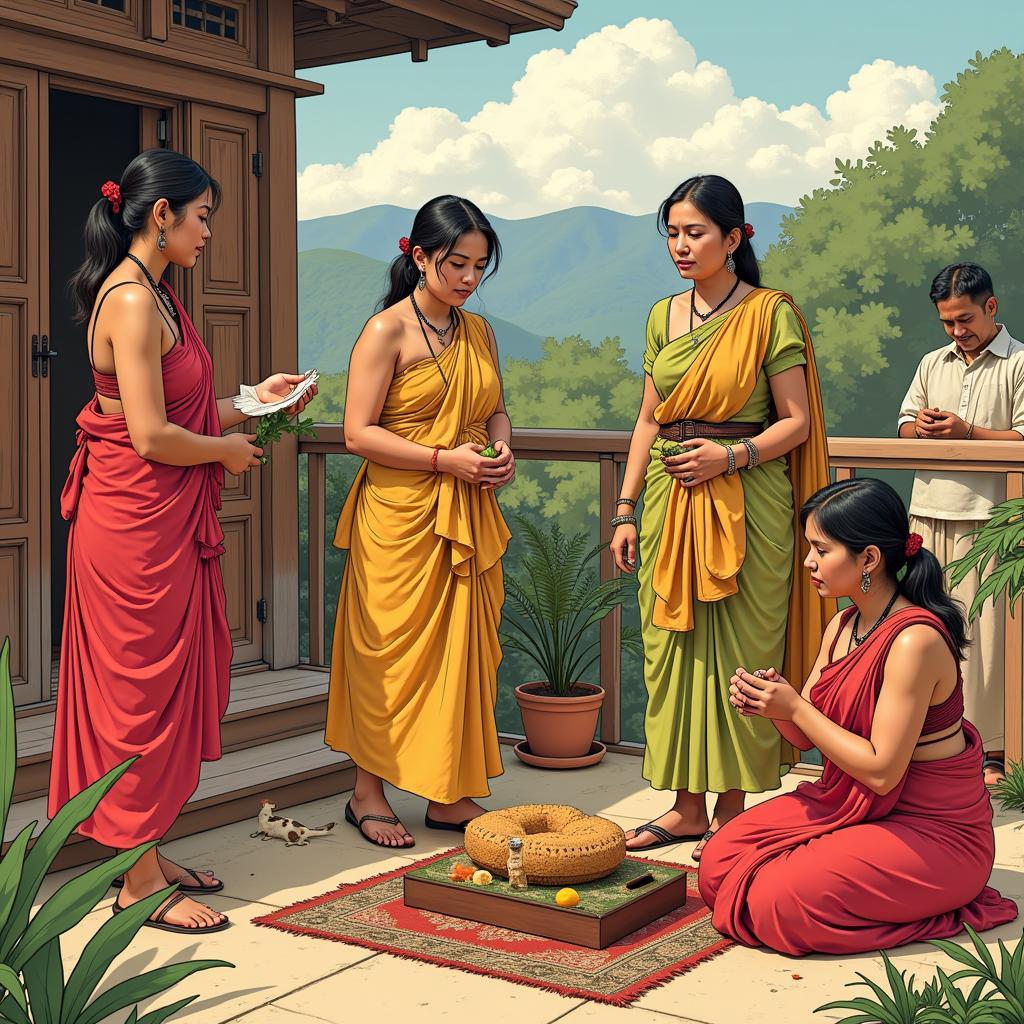 African Female Circumcision Ceremony Rituals
African Female Circumcision Ceremony Rituals
The Health and Social Consequences of FGM
The World Health Organization (WHO) recognizes FGM as a violation of human rights, with serious immediate and long-term health consequences. These can include severe pain, hemorrhage, infection, difficulty urinating, complications during childbirth, and psychological trauma. The practice can also lead to social isolation and discrimination against girls and women who have undergone FGM.
Beyond the immediate physical dangers, FGM can have profound psychological effects. Many women experience long-term emotional distress, anxiety, and depression. The trauma of the experience can also impact their relationships and overall well-being.
Global Efforts to Eradicate African Female Circumcision
Numerous international organizations, including the WHO and UNICEF, are working tirelessly to eradicate FGM. These efforts involve educating communities about the dangers of the practice, empowering women and girls, and advocating for legislation that criminalizes FGM. Progress has been made in recent years, with declining rates of FGM in many countries, but the fight is far from over.
There is a growing movement within affected communities to abandon FGM and embrace alternative rites of passage that celebrate womanhood without harming girls. These alternative ceremonies often involve education, mentoring, and community celebrations that focus on positive aspects of female identity and empowerment. African female tribe members are increasingly leading the charge in these transformative efforts.
What is being done to stop female circumcision in Africa?
Several interventions are being implemented to combat FGM, including community education programs, legal reforms, and support for survivors.
Why does female circumcision continue in some communities?
Despite the known dangers and global condemnation, FGM persists in some communities due to a complex interplay of factors. Social pressure, traditional beliefs, and fear of social ostracism can make it difficult for families to refuse to participate in the practice. Changing deeply ingrained cultural norms requires sustained effort and sensitivity to the nuances of each community. Understanding the african culture of girls is essential in addressing this practice.
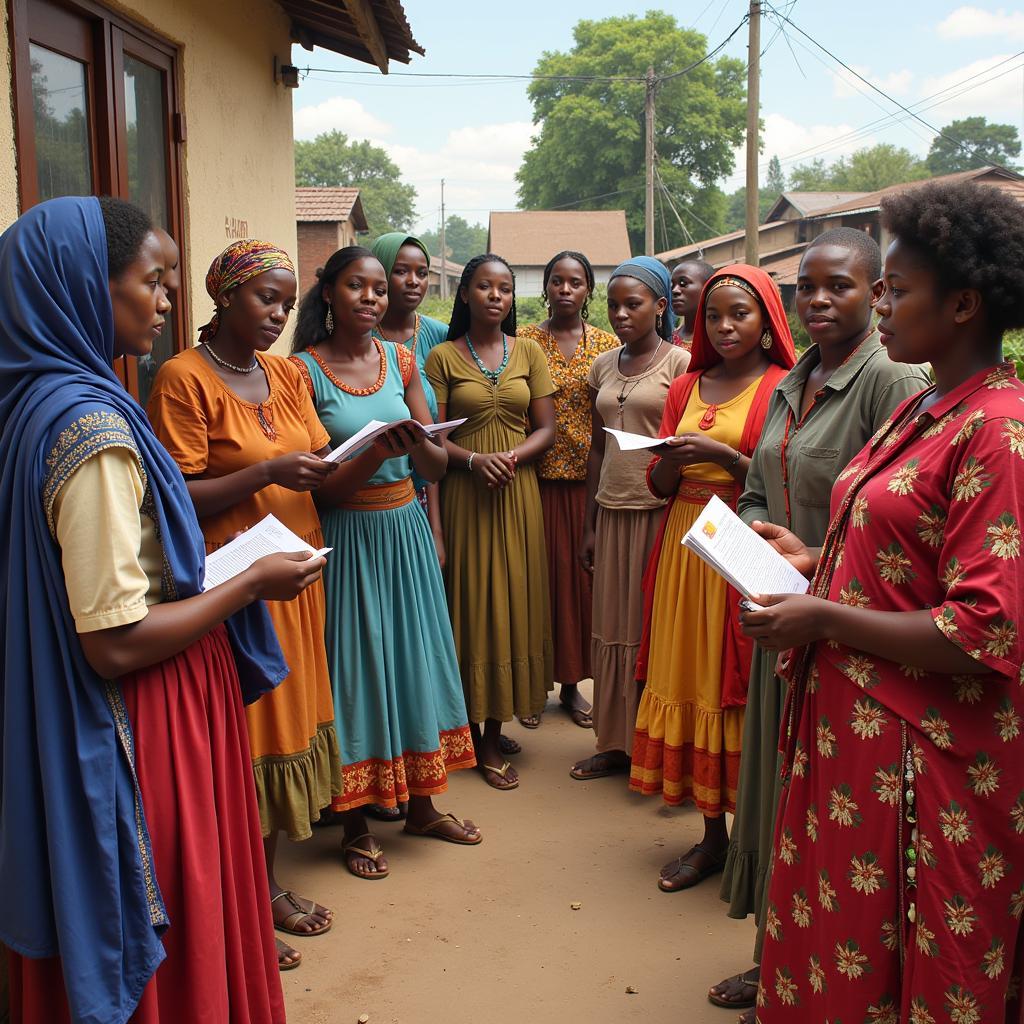 Community Outreach Programs Addressing African Female Circumcision
Community Outreach Programs Addressing African Female Circumcision
“Eradicating FGM requires a multi-faceted approach that addresses the underlying social and cultural factors that perpetuate the practice,” says Dr. Anika Mamadou, a leading anthropologist specializing in African cultural practices. “We need to engage with communities respectfully, listen to their concerns, and work together to find alternative ways to celebrate womanhood that don’t involve harming girls.”
“It’s essential to remember that the vast majority of people within these communities want what’s best for their children,” adds Fatima Mbaye, a prominent women’s rights activist in Senegal. “By working collaboratively and empowering women, we can create lasting change.”
Conclusion
The African female circumcision ceremony is a complex and sensitive issue. While it holds cultural significance for some, its harmful health consequences and violation of human rights cannot be ignored. Continued education, community engagement, and legal action are essential to eradicate this practice and protect the well-being of girls and women across Africa. Understanding the cultural context, while condemning the practice, is crucial to achieving a future where all girls and women are empowered to live healthy and fulfilling lives. This includes further research on African female circumcision ceremonies.
FAQ
- What is female genital mutilation (FGM)?
- Why is FGM practiced in some cultures?
- What are the health risks associated with FGM?
- What is being done to stop FGM?
- How can I support organizations working to end FGM?
- What are some alternative rites of passage that celebrate womanhood without harming girls?
- Where can I find more information about FGM?
Looking for further information? Explore our articles on other related topics found on this website.
Contact us for support: Phone: +255768904061, Email: [email protected] or visit us at Mbarali DC Mawindi, Kangaga, Tanzania. We have a 24/7 customer service team.
